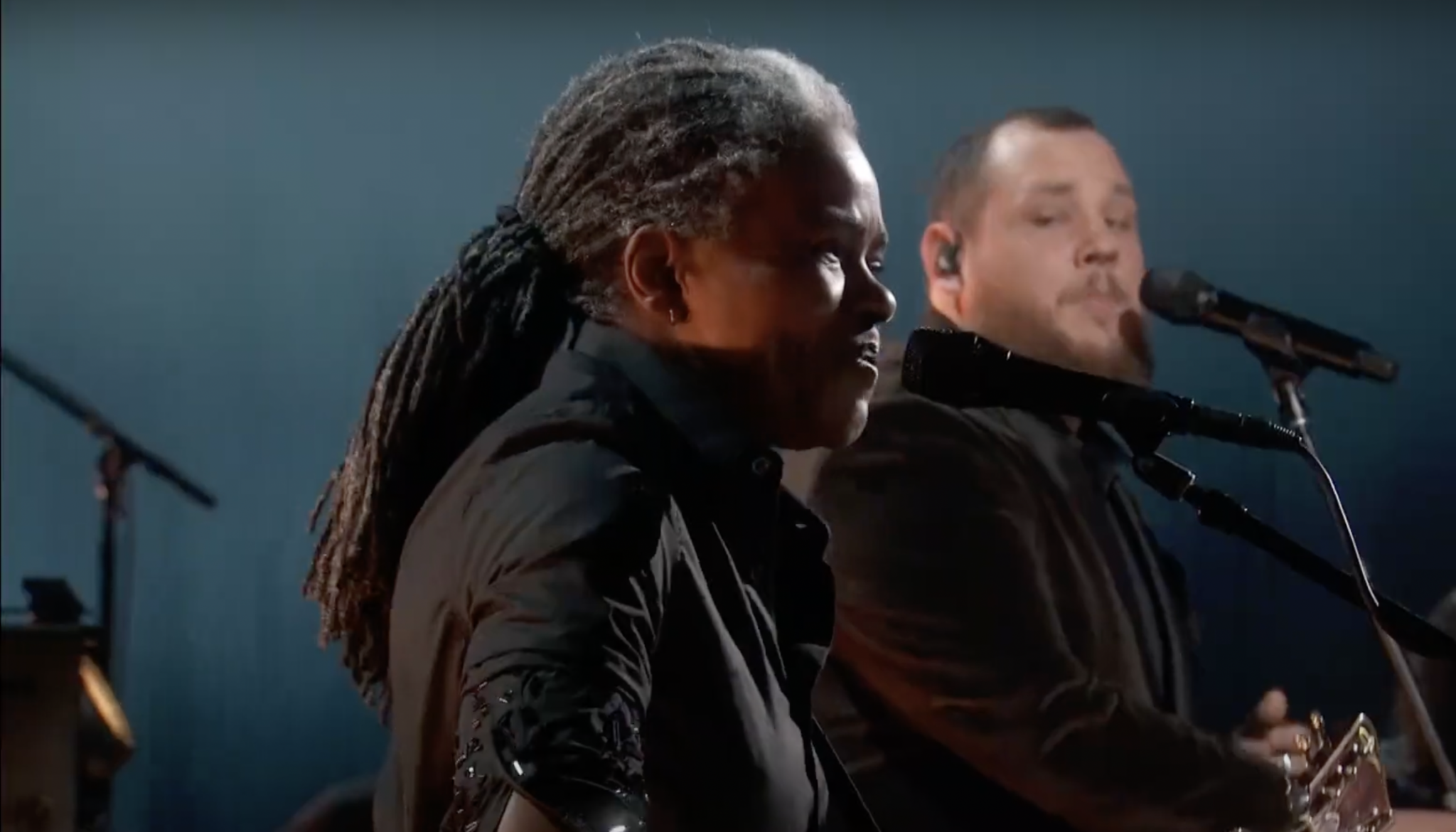I remember where I was the first time I heard Tracy Chapman’s 1988 hit “Fast Car.”
I bought the song with an iTunes card and listened to it reverb through my bright pink headphones at about 8 years old. The song, which follows a narrator who dreams of escaping a troubled life with a partner and a car, was a stark contrast to any music I had heard before that point. It’s introspective and slow. Chapman’s lyrics are rife with reflection on difficult circumstances, such as poverty, family issues and unfulfilled dreams.
I was born more than a decade after “Fast Car” gave Chapman a top-10 hit and a Best New Artist Grammy win in the late 80s. But like so many others, I’ve always considered the song among the most beautiful pieces of music ever crafted. And this week, it’s experiencing a cultural resurgence.
Chapman joined country artist Luke Combs at the 2024 Grammy Awards on Sunday to perform a duet of “Fast Car.” Combs’ cover of the track on his 2023 album has made a huge splash, peaking at No. 2 on the Billboard Hot 100. His voice provides a more gruff and unrefined tone to the song’s lyrics, and his cover is commendable. But Chapman, who has not been in the public eye for decades, is a singular vocal and songwriting talent. And on Sunday, she stole the show.
The second Chapman began strumming “Fast Cars”’s familiar guitar riff in the dark shadows of the Grammys stage, I gasped. While I don’t have the most intimate connection to the song, and I’m far from a fan of Combs’ country music, I found myself tearing up multiple times as the pair shared the stage. For many, I’m sure seeing Chapman once again after so long felt like greeting an old friend. As one X, formerly Twitter, user pointed out, the audience’s realization that Chapman had returned brought a sense of “receiving something, someone, we need, and realizing they really are there, just as we need them.”
[2024 Grammys Fashion: From classic chic to striking looks]
I’ve rewatched Chapman and Combs’ performance dozens of times across the last two days. Everyone I’ve spoken to has a different favorite part — from Chapman’s smile as the audience recognizes her, to the ending, when Combs and Chapman traded off singing the song’s final four lines.
Memorable moments like those are what award shows are made for. Watching Chapman and Combs on stage made me reconsider what the term “music’s biggest night” could truly encompass. The Grammys are one of the only nights each year where a good chunk of musicians with global popularity are all in the same room. To make the award show a must-see television event again, those musicians need to play together.
Sure, Chapman isn’t at the peak of her fame. But bringing together two artists from contrasting musical eras fulfills a desire for unique, show-stopping moments among audiences. This wish was also fulfilled at the 2015 Country Music Awards, where Chris Stapleton and Justin Timberlake belted out a duet of Stapleton’s “Tennessee Whiskey” and Timberlake’s “Drink You Away.” I’d be hard-pressed to name two artists more diametrically opposed to one another than Stapleton and Timberlake. But that’s why their duet worked.
The Grammys have a unique opportunity to bring together the biggest artists and showcase something truly new and innovative. But as an avid award show viewer, it feels like too many Grammy performances have morphed into carbon copies of a song’s original recording.
[Billy Joel’s new single reignites the fire after 17 years]
As award show ratings dwindle and music becomes increasingly accessible, there are fewer and fewer reasons for audiences to tune into a performance that fails to innovate on a song’s potential. Why would anyone watch Olivia Rodrigo or Taylor Swift sing their greatest hits with a muffled live band when they could just listen to them on Spotify?
There’s one reason: for moments like Combs and Chapman’s on Sunday. The performance was so powerful because it sounded unique from either artist’s individual take on the track. It also allowed the Grammys to start a cultural conversation. Performances at the Grammys have strayed too far from collaboration and innovation, but Chapman and Combs showcased a roadmap for what the future of celebrating music could look like. The pair transcended genres and decades. They ignited a cultural dialogue about a beloved piece of songwriting. If future Grammys performances want to live up to their claim of being “music’s biggest night,” they should start by replicating that moment.



